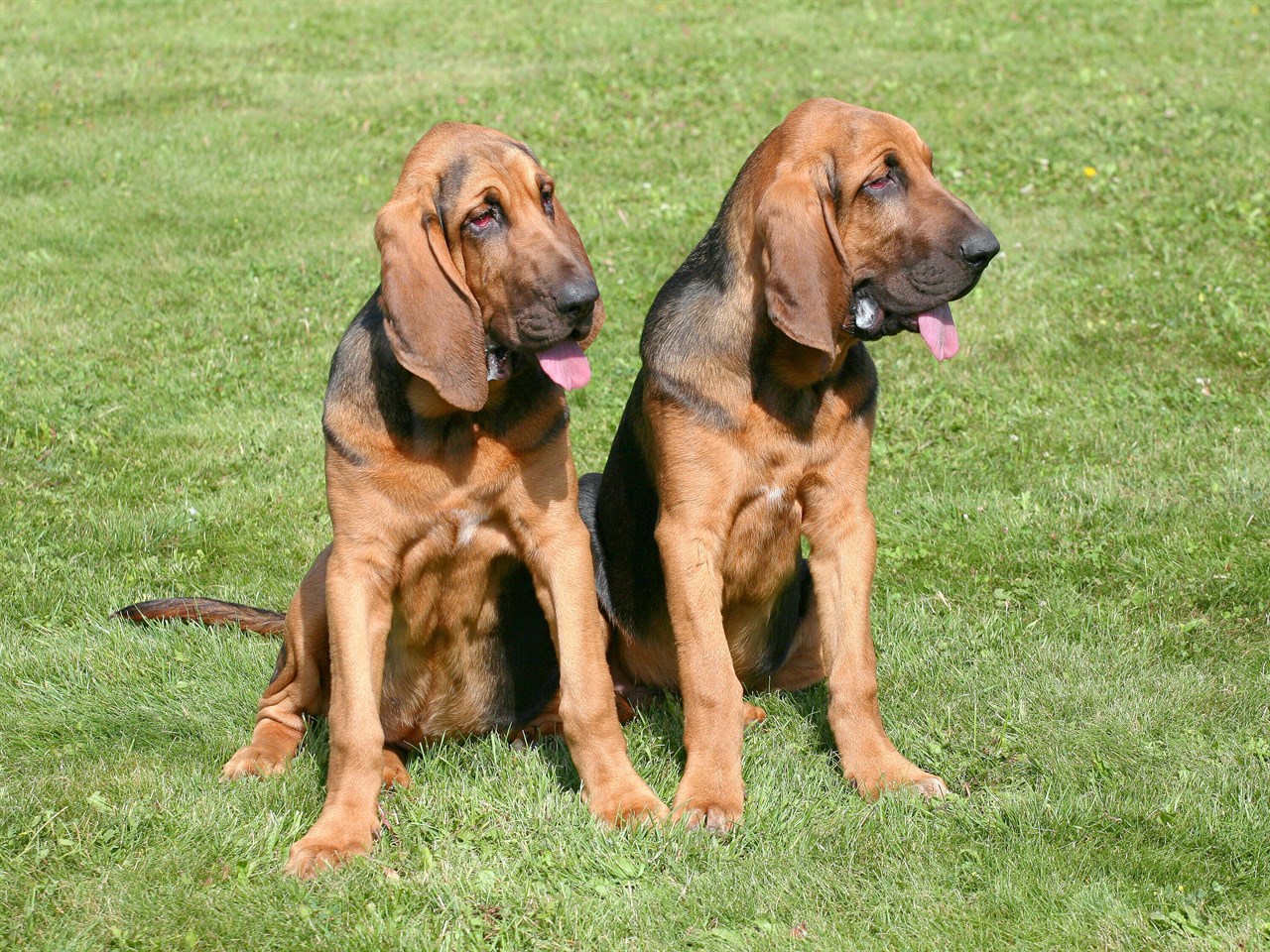Common Health Issues of Bloodhound Dogs

While Bloodhounds are generally robust dogs, like all breeds, they can be prone to specific health issues. Responsible breeding practices can help mitigate some of these issues, but it's essential for
Bloodhound owners to be aware of potential health concerns and provide appropriate care and monitoring. Common health issues in Bloodhounds include:
- Bloat (Gastric Torsion): Bloodhounds, like other deep-chested breeds, are susceptible to bloat, a potentially life-threatening condition where the stomach twists on itself. Symptoms include restlessness, unproductive vomiting, and a distended abdomen. Immediate veterinary intervention is crucial.
- Hip Dysplasia: This inherited condition can lead to hip joint abnormalities and arthritis. Maintaining a healthy weight and regular exercise can help manage symptoms.
- Elbow Dysplasia: Elbow dysplasia involves malformation of the elbow joint, which can lead to lameness and pain. Weight management and joint supplements can help alleviate symptoms.
- Entropion: Bloodhounds may suffer from entropion, a condition where the eyelids roll inward, causing irritation and eye problems. Surgical correction may be necessary.
- Ectropion: The opposite of entropion, ectropion is when the eyelids roll outward, exposing the inner eyelid. While not usually painful, it can lead to eye irritation.
- Hip and Elbow Dysplasia: Bloodhounds can be prone to both hip and elbow dysplasia, which are hereditary joint conditions. Regular veterinary check-ups, weight management, and joint supplements can help manage these conditions.
- Ear Infections: Bloodhounds' long, floppy ears can trap moisture, making them prone to ear infections. Regular ear cleaning and drying are essential.
- Skin Fold Infections: Their loose skin and wrinkles can also lead to skin fold infections, especially in warm and humid climates. Proper cleaning and maintenance of their skin folds can prevent these issues.
- Obesity: Due to their large size and lower activity levels, Bloodhounds are prone to obesity. Maintaining a healthy diet and providing regular exercise is vital to prevent obesity-related health problems.
- Hypothyroidism: Bloodhounds may experience hypothyroidism, a condition where the thyroid gland doesn't produce enough hormones. Symptoms include weight gain, lethargy, and skin issues. Treatment usually involves medication.
Do Bloodhounds' eyes hurt? Bloodhounds can experience eye problems, such as entropion and ectropion, which may cause discomfort and irritation. Additionally, they can be susceptible to other eye conditions. If you notice any signs of eye discomfort or if your Bloodhound displays unusual behaviour related to their eyes, it's essential to consult with a veterinarian for a thorough evaluation and appropriate treatment. Regular eye exams are also advisable to monitor their eye health.
Bloodhound puppies for sale
- Find Bloodhound puppies for sale in ACT
- Find Bloodhound puppies for sale in NSW
- Find Bloodhound puppies for sale in NT
- Find Bloodhound puppies for sale in QLD
- Find Bloodhound puppies for sale in SA
- Find Bloodhound puppies for sale in TAS
- Find Bloodhound puppies for sale in VIC
- Find Bloodhound puppies for sale in WA